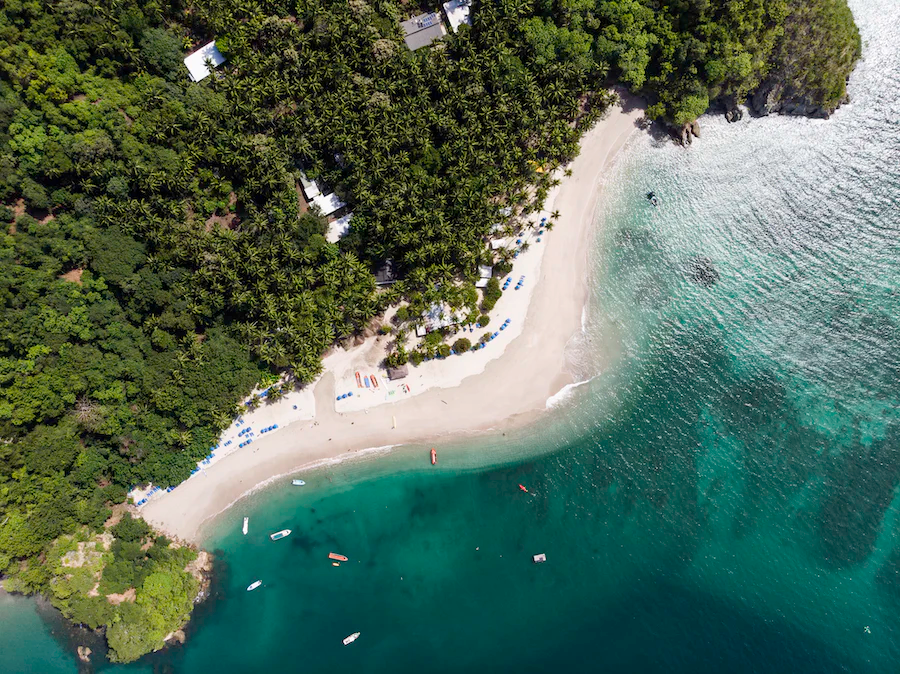Costa Rica’s allure isn’t just in its breathtaking landscapes and vibrant culture; it’s also becoming a hotspot for real estate investors from around the globe. With its stable and growing economy, Costa Rica offers a promising ground for those looking to invest in a slice of paradise. Whether you’re eyeing a retirement haven, a holiday home, or a lucrative real estate venture, understanding the market’s dynamics is key.
The country’s real estate sector is buoyed by an expected sustainable growth rate, indicating not just a thriving present but a flourishing future. Coupled with a shift towards younger families seeking investment opportunities in the wake of the COVID-19 pandemic, Costa Rica’s real estate market is ripe with potential. Let’s jump into what makes Costa Rica an attractive option for real estate investors and how you can navigate this promising market.
Overview of Real Estate Investment in Costa Rica
Costa Rica’s real estate market beckons with high index rankings and a reputation for having one of the world’s most desirable ecosystems. This attracts a diverse range of investors, from retirees to young families, each looking for their slice of paradise. The Costa Rican government’s welcoming attitude towards foreign investment makes it easier for expats to buy property, whether for personal use or investment purposes.
In Costa Rica, the process of buying property is straightforward, provided you adhere to the local legal framework. The country operates under a system that favours the security of real estate transactions, ensured through a nationally registered system. This system guarantees that the property rights are clearly defined and protected, making the purchase process reliable and transparent.
The appeal of Costa Rican real estate lies not only in its natural beauty and stable economy but also in the potential for sustainable growth. Post-COVID-19, younger families in particular are eyeing Costa Rica as a promising location to invest in real estate. The country offers a variety of properties, from beachfront homes to mountain retreats, catering to different investment budgets and lifestyle preferences.
Ownership security is a top priority, with various legal mechanisms in place to protect investors. The country’s Construction Law, Construction Projects Regulations, and the Seismic Code dictate the standards for building and development, ensuring that investments are both safe and compliant with local requirements.
Benefits of Investing in Costa Rica

Costa Rica offers a compelling case for investors looking for a stable and profitable real estate market. The country’s unique combination of political stability, low taxation, and natural beauty makes it a prime spot for investment opportunities. As you explore the various benefits, it becomes clear why Costa Rica stands out as a top choice for real estate investors worldwide.
Stable Economy
Costa Rica’s economy is renowned for its stability and resilience. It has demonstrated continuous growth over the years, attributed largely to its political stability and a consistent focus on diversifying its economy. As opposed to many other nations, Costa Rica abolished its army in 1948, reallocating military funds to foster education, healthcare, and environmental protection. This decision has contributed to a well-educated workforce and a high standard of living, making the country attractive for foreign investments.
The country’s commitment to democratic principles and a stable government has not gone unnoticed. Investors are often drawn to Costa Rica for its long history of democracy, having never experienced a military coup or civil war. This political stability is a critical factor for real estate investors, ensuring that their investments are safe and protected from the kinds of political upheavals seen in other regions.
Another factor contributing to Costa Rica’s economic stability is its favourable tax structure. Real estate investors benefit from low property taxes—just 0.25% of the property value, one of the lowest rates globally. Also, capital gains tax on the sale of investment properties is capped at 15%, offering further financial incentives and strengthening the case for real estate investment in the country.
Booming Tourism Industry
Costa Rica’s tourism industry is a significant contributor to the country’s economy, attracting millions of visitors each year. Known for its lush rainforests, stunning beaches, and abundant wildlife, Costa Rica has established itself as a premier destination for eco-tourism and adventure tourism. This surge in tourism has created numerous opportunities for real estate investors, particularly in the hospitality sector, from luxury resorts to secluded villas and beachfront properties.
The country’s focus on sustainable and eco-friendly tourism aligns with global trends toward responsible travel, further enhancing its appeal to international visitors. The government and private sector’s investment in tourism infrastructure—from improved roads to expanded airports—ensures the country remains accessible and attractive to tourists year-round.
Real estate investors can capitalise on this booming tourism by offering rental properties, which see high demand throughout the year. The consistent influx of tourists looking for both short-term and long-term stays translates to potentially high rental income and property appreciation. Besides, the diversity of tourists, from backpackers to luxury travellers, ensures a broad market for various types of rental accommodations.
Types of Real Estate Properties in Costa Rica

Costa Rica’s real estate world offers a diverse array of investment opportunities that cater to a broad range of preferences and needs. Whether you’re looking for a warm coastal retreat, a bustling city residence, or a strategic commercial space, the country’s property market is rich with possibilities.
Residential Properties
In Costa Rica, residential properties come in various forms, from luxurious beachfront villas to quaint mountain homes. The decision to invest in a particular type of residential property should be guided by your lifestyle preferences, investment goals, and the potential for rental income.
Key areas such as the Central Valley, which includes cities like San José, Escazú, and Santa Ana, are known for their mix of modern conveniences and natural beauty. Here, properties are in high demand due to their proximity to business centres, international schools, and healthcare facilities.
The coastal regions, on the other hand, appeal to those seeking a tranquil lifestyle with easy access to beaches and nature. Destinations like Guanacaste on the Pacific coast and Puerto Viejo on the Caribbean side boast a variety of properties, from simple cottages to opulent estates, catering to the booming tourism sector.
The availability and cost of residential properties in Costa Rica can vary significantly based on location, size, and amenities provided. It’s essential to conduct thorough research or consult with a local real estate expert to understand the nuances of each area and find a property that meets your unique requirements.
Commercial Properties
Investing in commercial real estate in Costa Rica offers a promising avenue for generating significant returns, particularly in areas with high tourist footfall. The country’s strategic location, stable economy, and growing tourism industry make it an attractive destination for commercial investments.
Commercial properties in Costa Rica encompass a wide range of options, including retail spaces, hotels, restaurants, and office buildings. Popular areas for commercial investments include the Central Valley, with its thriving urban centres, and the coastal regions, where tourism-driven businesses flourish.
Cities like San José, along with its affluent suburbs of Escazú and Santa Ana, host a variety of commercial properties catering to both local and international businesses. These areas offer solid infrastructure, access to a skilled workforce, and proximity to financial and governmental institutions, making them ideal for corporate investments.
Tourist hotspots such as Guanacaste, Manuel Antonio, and the Caribbean coast present lucrative opportunities for investing in hotels, resorts, and recreational facilities. The ongoing influx of tourists ensures a steady demand for accommodation and leisure activities, providing investors with a sustainable source of rental income.
When considering commercial property investment in Costa Rica, it’s crucial to have a well-thought-out business plan and understand the local market dynamics. Engaging with a knowledgeable real estate advisor who can provide insights into the specific requirements and regulations for commercial investments in Costa Rica is highly recommended.
Factors to Consider Before Investing

Location
When you’re considering an investment in Costa Rica, the location of your property plays a pivotal role. Coastal areas like Guanacaste and Puerto Viejo are renowned for their tourist appeal and high rental demand, making them prime spots for vacation properties. Meanwhile, the Central Valley, encompassing cities like San José and Heredia, offers a blend of urban convenience and natural beauty, appealing to those looking for residential or commercial investments.
- Tourist Hotspots: Areas with established tourist infrastructure, such as Tamarindo and Manuel Antonio, offer lucrative opportunities for short-term vacation rentals.
- Residential Areas: Regions like the Central Valley are sought after for their cooler climate and accessibility to amenities, ideal for long-term residencies.
Selecting the right location involves assessing factors like accessibility, potential for appreciation, and the type of investment you’re considering—be it residential, commercial, or vacation rentals.
Legal Considerations
Investing in Costa Rican real estate comes with its set of legal considerations to ensure a smooth and secure transaction. Firstly, it’s vital to understand that foreign investors enjoy the same rights as local residents, providing a level playing field for property ownership. But, certain areas, especially near the coastline, might have specific regulations, such as the Maritime Zone law, affecting property rights.
- Due Diligence: Always conduct thorough due diligence, including a title search to confirm the property’s legal standing and to uncover any possible liens or encumbrances.
- Ownership Structures: Consider the most advantageous ownership structure for your investment, often a Costa Rican corporation, to help easier transactions and potential tax benefits.
- Lease Agreements: Familiarize yourself with the terms of lease agreements, particularly if your investment strategy involves renting out the property. The law mandates a minimum lease term of three years, with specific obligations for both landlords and tenants.
Engaging with a reputable local attorney and real estate advisor is indispensable to navigate the legal world effectively. They can provide invaluable guidance on zoning laws, permit requirements, and the overall legal process, ensuring your investment is sound and compliant with local regulations.
Top Regions for Real Estate Investment in Costa Rica

When you’re considering real estate investment in Costa Rica, selecting the right region is crucial for maximizing your returns. Here’s a rundown of the top regions that promise lucrative opportunities for investors.
Guanacaste Region
Guanacaste stands out for its stunning beaches, making it a prime location for both residential and holiday rental properties. The region’s popularity with tourists translates into high rental demand, especially during the dry season from December to April. Investing in coastal properties near popular towns like Tamarindo or Playas del Coco can offer you solid rental yields and property appreciation.
Central Valley
The Central Valley, encompassing the metropolitan area around San José, offers a different appeal. Its urban convenience combined with surrounding natural beauty attracts a diverse demographic, from expatriates to local professionals. Areas such as Escazú and Santa Ana are particularly desirable for their high standard of living and robust property market. The Central Valley’s steady rental market and potential for capital growth make it an attractive option for investors looking for urban investments.
Puerto Viejo and the Caribbean Coast
Puerto Viejo and the broader Caribbean Coast of Costa Rica have seen growing interest from investors looking for a more laid-back, tropical vibe. This region is renowned for its rich biodiversity and vibrant culture, offering unique investment opportunities in eco-tourism and hospitality. Properties here can appeal to a niche market seeking authentic experiences, potentially leading to higher rental incomes and occupancy rates for discerning investors.
By focusing your investment in these regions, you’re tapping into Costa Rica’s diverse real estate market, leveraging the country’s appeal to tourists, expats, and locals alike.
Conclusion
Diving into Costa Rica’s real estate market opens up a world of opportunity. Whether you’re drawn to Guanacaste’s beachfront charm, the Central Valley’s urban allure, or the untamed beauty of Puerto Viejo and the Caribbean Coast, there’s a slice of paradise waiting for you. With each region offering unique benefits for investment, from high rental demand to eco-tourism potential, you’re well-placed to make a savvy investment. Remember, Costa Rica isn’t just a place to invest; it’s a lifestyle choice that promises both financial returns and the joy of owning a piece of this tropical haven.









